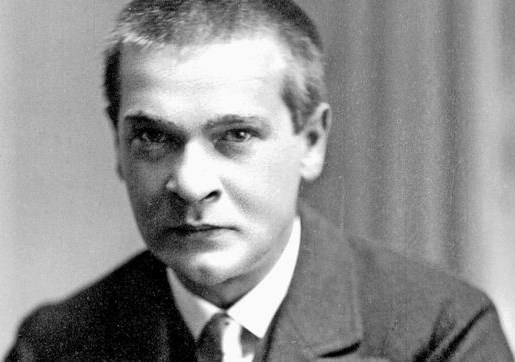
The poet and writer Georg Trakl [E1] [E2] [I1] [I2] [F1] [F2] [S1] [S2] was born as the son of the ironmonger Tobias Trakl and his wife Maria Catharina, nee Halik, on February 3, 1887 in Salzburg. At the age of 13, Georg Trakl began writing poetry. He studied pharmacy in Vienna and simultaneously began to publish his first poems. Trakl was also interested in literature, music, painting and architecture. Between 1910 and 1914 Georg Trakl wrote his most important works. In 1912 Trakl temporarily worked as a military pharmacist in Innsbruck. His search for stability in life was fruitless, and following excessive drug use, Trakl fell into deep depression. In 1912 Georg Trakl's poem 'Vorstadt im Föhn' was published in the Innsbruck cultural and political journal 'Der Brenner', whose editor was his friend and benefactor Ludwig von Ficker. All subsequent poetic work by Trakl appeared in the monthly issues of this journal. Karl Kraus also published poems by Georg Trakl in the journal 'Die Fackel'. During this time, Trakl met Oskar Kokoschka and Else Lasker-Schüler. In 1913, the publisher Kurt Wolff published Georg Trakl's book of poetry 'Der jüngste Tag'. Georg Trakl volunteered for World War I, where he served on the Eastern Front in the Galician town of Grodek as a medical officer. As a consequence of his traumatic experiences of the war, Georg Trakl suffered a nervous breakdown and was admitted to a military hospital in Krakow. During his convalescence in the Krakow hospital, Trakl wrote his poems 'Grodek', 'Im Osten' and 'Klage'. Georg Trakl committed suicide on November 3, 1914 in Krakow. Today, Georg Trakl is considered one of the most extraordinary poets and most important exponents of Austrian Expressionism.[S1] [S2] [S3]
Grodek
Am Abend tönen die herbstlichen Wälder
Von tödlichen Waffen, die goldnen Ebenen
Und blauen Seen, darüber die Sonne
Düster hinrollt; umfängt die Nacht
Sterbende Krieger, die wilde Klage
Ihrer zerbrochenen Münder.
Doch stille sammelt im Weidengrund
Rotes Gewölk, darin ein zürnender Gott wohnt,
das vergoßne Blut sich, mondne Kühle;
alle Straßen münden in schwarze Verwesung.
Unter goldnem Gezweig der Nacht und Sternen
Es schwankt der Schwester Schatten durch den schweigenden Hain,
zu grüßen die Geister der Helden, die blutenden Häupter;
Und leise tönen im Rohr die dunkeln Flöten des Herbstes.
O stolzere Trauer! ihr ehernen Altäre,
Die heiße Flamme des Geistes nährt heute ein gewaltiger Schmerz,
Die ungebornen Enkel.
[S3]
Exercise n. 1 Choose the right answer:
1. In ‘Grodek’ natur conveys a sense of
- happiness
- fear
- despair
- sadness
2. Language and style of this poem are
- easy to understand
- rhythmic thanks to final rhymes
- elaborated and difficult
- typicsl of a sonnet
3.Trakl’s poem conveys its powerful message through- allegories
- symbolic
- realistic
- surreal
images
Exercise n. 2 Underline in the text the words that convey colours and sounds and answer the following questions:
1. What function do these elements have in the poem?
2. Silence is also a sound. What role does it play?